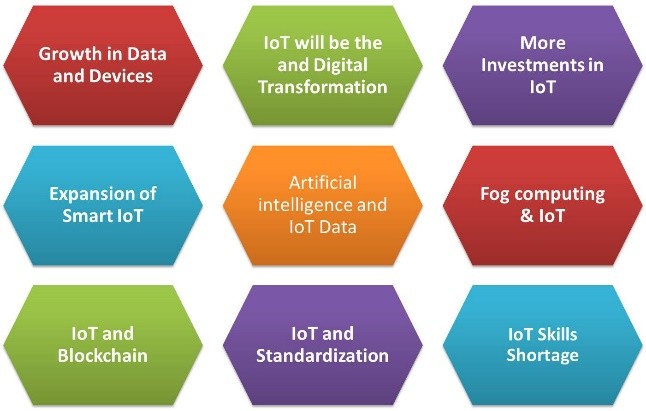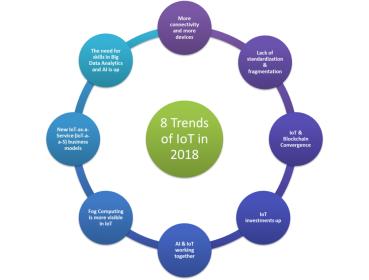By 2020, the Internet of Things (IoT) is predicted to generate an additional $344B in revenues, as well as to drive $177B in cost reductions. IoT and smart devices are already increasing performance metrics of major US-based factories. They are in the hands of employees, covering routine management issues and boosting their productivity… Read More
Tag: fog computing
Looking Ahead: What is Next for IoT
Over the past several years, the number of devices connected via Internet of Things (IoT) has grown exponentially, and it is expected that number will only continue to grow. By 2020, 50 billion connected devices are predicted to exist, thanks to the many new smart devices that have become standard tools for people and businesses… Read More
8 Trends of IoT in 2018
The Internet of things (IoT) is growing rapidly and 2018 will be a fascinating year for the IoT industry. IoT technology continues to evolve at an incredibly rapid pace. Consumers and businesses alike are anticipating the next big innovation. They are all set to embrace the ground-breaking impact of the Internet of Things on our… Read More
Five Challenges to IoT Analytics Success
The Internet of Things (IoT) is an ecosystem of ever-increasing complexity; it’s the next wave of innovation that will humanize every object in our life. IoT is bringing more and more devices (things) into the digital fold every day, which will likely make IoT a multi-trillion dollars’ industry in the near future. To understand… Read More
IoT Tutorial: Chapter 6 – IoT at the Edge
IoT and the Edge Computing Paradigm – Why Edge Computing? In previous chapters we illustrated how cloud computing enables nowadays IoT applications to benefit from its capacity, scalability, elasticity and pay-as-you-go nature. During recent years a number of IoT/cloud deployments have demonstrated the merits of integrating… Read More
21 months lining up OPNFV-on-ARM for telecom
Telecom infrastructure is one area where X86 architecture hasn’t dominated historically. Infrastructure gear is spread across MIPS, Power, and SPARC architectures, with some X86, and a relative newcomer: ARM, already claiming 15% share. That’s a stunning figure considering only a bit less than 5 years ago… Read More




